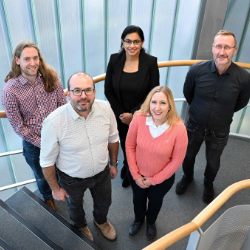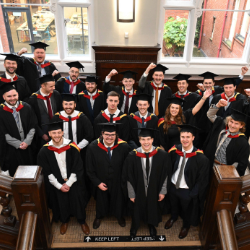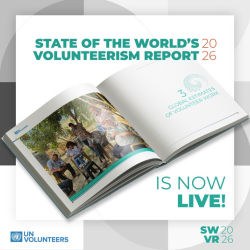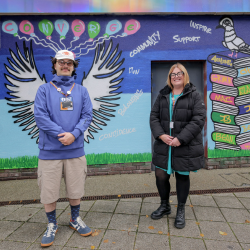-
Study
-
Quick Links
- Open Days & Events
- Real-World Learning
- Unlock Your Potential
- Tuition Fees, Funding & Scholarships
- Real World Learning
-
Undergraduate
- Application Guides
- UCAS Exhibitions
- Extended Degrees
- School & College Outreach
- Information for Parents
-
Postgraduate
- Application Guide
- Postgraduate Research Degrees
- Flexible Learning
- Change Direction
- Register your Interest
-
Student Life
- Students' Union
- The Hub - Student Blog
- Accommodation
- Northumbria Sport
- Support for Students
-
Learning Experience
- Real-World Learning
- Research-enriched learning
- Graduate Futures
- The Business Clinic
- Study Abroad
-
-
International
International
Northumbria’s global footprint touches every continent across the world, through our global partnerships across 17 institutions in 10 countries, to our 277,000 strong alumni community and 150 recruitment partners – we prepare our students for the challenges of tomorrow. Discover more about how to join Northumbria’s global family or our partnerships.
View our Global Footprint-
Quick Links
- Course Search
- Undergraduate Study
- Postgraduate Study
- Information for Parents
- London Campus
- Northumbria Pathway
- Cost of Living
- Sign up for Information
-
International Students
- Information for International Students
- Northumbria and your Country
- International Events
- Application Guide
- Entry Requirements and Education Country Agents
- Global Offices
- English Requirements
- English Language Centre
- International student support
- Cost of Living
-
International Fees and Funding
- International Undergraduate Fees
- International Undergraduate Funding
- International Masters Fees
- International Masters Funding
- International Postgraduate Research Fees
- International Postgraduate Research Funding
- Useful Financial Information
-
International Partners
- Agent and Representatives Network
- Global Partnerships
- Global Community
-
International Mobility
- Study Abroad
- Information for Incoming Exchange Students
-
-
Business
Business
The world is changing faster than ever before. The future is there to be won by organisations who find ways to turn today's possibilities into tomorrows competitive edge. In a connected world, collaboration can be the key to success.
More on our Business Services-
Business Quick Links
- Contact Us
- Business Events
- Research and Consultancy
- Education and Training
- Workforce Development Courses
- Join our mailing list
-
Education and Training
- Higher and Degree Apprenticeships
- Continuing Professional Development
- Apprenticeship Fees & Funding
- Apprenticeship FAQs
- How to Develop an Apprentice
- Apprenticeship Vacancies
- Enquire Now
-
Research and Consultancy
- Space
- Energy
- AI and Tech
- CHASE: Centre for Health and Social Equity
- NESST
-
-
Research
Research
Northumbria is a research-rich, business-focused, professional university with a global reputation for academic quality. We conduct ground-breaking research that is responsive to the science & technology, health & well being, economic and social and arts & cultural needs for the communities
Discover more about our Research-
Quick Links
- Research Peaks of Excellence
- Academic Departments
- Research Staff
- Postgraduate Research Studentships
- Research Events
-
Research at Northumbria
- Interdisciplinary Research Themes
- Research Impact
- REF
- Partners and Collaborators
-
Support for Researchers
- Research and Innovation Services Staff
- Researcher Development and Training
- Ethics, Integrity, and Trusted Research
- University Library
- Vice Chancellors Fellows
-
Research Degrees
- Postgraduate Research Overview
- Doctoral Training Partnerships and Centres
- Academic Departments
-
Research Culture
- Research Culture
- Research Culture Action Plan
- Concordats and Commitments
-
-
About Us
-
About Northumbria
- Our Strategy
- Our Staff
- Our Schools
- Place and Partnerships
- Leadership & Governance
- University Services
- Northumbria History
- Contact us
- Online Shop
-
-
Alumni
Alumni
Northumbria University is renowned for the calibre of its business-ready graduates. Our alumni network has over 253,000 graduates based in 178 countries worldwide in a range of sectors, our alumni are making a real impact on the world.
Our Alumni - Work For Us
What will I learn on this module?
This module introduces you to fashion cultures through the exploration of the intersection between the use of dress to express individual and cultural identity, fashion history, contemporary fashion industry practices and the global challenges and debates that are shaping the future of fashion. You will take part in a series of collaborative and individual research-based activities to develop an understanding of the relationship between fashion theory and practice and understand its potential as a catalyst for creative and critical thinking You will learn how to conduct authentic, relevant research, using responsible methods, sources and materials, and how to interpret the findings for creative purposes, and meaningful fashion outcomes. Through the development of your new knowledge of fashion design history and making practices, at the intersection of personal and cultural identity and the global challenges faced in fashion, you will expand your visual design vocabulary.
The historical and theoretical elements of the module are presented in lectures reinforced through interactive seminars and workshops. These give context to practice-based workshops on the fashion formal elements of silhouette, colour, pattern, texture, detail, line and proportion, in relation to the moving human body. The module is supported by other relevant activities such as visits and creative and technical workshops.
Over the course of this module, you will record and develop your work in a Creative Process Journal (CPJ), developing skills in 2D and 3D research methods and critical reflection. A 1500-word essay will contribute to this developmental journey, providing the opportunity for you to demonstrate your growing knowledge and understanding of fashion culture and your practice within it.
How will I learn on this module?
A wide range of teaching and learning strategies will encourage you to acquire a holistic approach to creative problem solving in your design practice. You will gain an understanding of the context and culture of fashion and how it can be used in an impactful way in society. This is a hybrid theory into practice module that is rooted in experiential learning. You learn through participating in peer review, critical analysis and debate in small and large groups, analysing fashion garments, images and news. This supports creative 2D and 3D research skills that underpins your development in pattern cutting, constructed knitwear and printed surface textiles.
Throughout the module, you will document and reflect on your experimental creative processes and skills development. Formative and summative assessment will be used not only to assess your work, but to enable you to improve iteratively (e.g. through essay planning) and in your future learning journey.
Your active engagement with this module is a key component to how you will learn.
How will I be supported academically on this module?
• At the start of the module, the creative brief, learning plan, learning outcomes, work requirements and assessment process will be presented verbally and visually by the module tutor.
• Delivery of this module will be a mix of practical studio sessions, workshops, lectures, seminars, group and individual tutorials. Blended studio-based work will facilitate the development of introductory fashion thinking and practice. Directed Study will be set regularly with specific set tasks to underpin your learning and inspire independent enquiry or study.
• Throughout the module, you will receive ongoing formative feedback in formal and informal tutorials. Feedback may be verbal or written.
• To be successful in this module it is important to engage with all sessions and all forms of delivery.
• After summative assessment, you will receive formal constructive written feedback and a grade indicating your achievement in relation to the learning outcomes. Additionally, you will be offered a tutorial with members of the academic team.
• In addition to your module tutors, you will be supported by various other members of staff and university services including:
o Technicians aligned with your modules to provide technical instruction and demonstration of equipment and software required to complete you project work;
o Library staff to guide you in the ongoing development of essential study: IT skills, information retrieval skills and academic writing via Skills Plus;
o Academic Language Skills modules to help students at the Northumbria Campuses whose first language is not English or who have no experience studying in English in the UK.
What will I be expected to read on this module?
All modules at Northumbria include a range of reading materials that students are expected to engage with. The reading list for this module can be found at: http://readinglists.northumbria.ac.uk
(Reading List service online guide for academic staff this containing contact details for the Reading List team – http://library.northumbria.ac.uk/readinglists)
What will I be expected to achieve?
Knowledge & Understanding:
2. Recall and explain contextual issues, historical movements and design perspectives that shape fashion design practice.
4. Apply critical thinking to debate fashion design issues or develop creative fashion work.
Intellectual / Professional skills & abilities:
3. Apply fashion design approaches and research methods to develop work.
4. Independently generate fashion concepts, proposals, solutions or arguments.
Personal Values Attributes (Global / Cultural awareness, Ethics, Curiosity) (PVA):
5. Identify design strengths, set clear goals, and align learning objectives with personal design interests.
How will I be assessed?
Formative Assessment process:
You will receive ongoing formative feedback in taught sessions to guide your progression and development.
Summative assessment:
You will submit the following for summative assessment:
Component 1: Creative Process Journal (CPJ) of creative project work (50%)
Component 2: 1500-word essay (50%)
You will be assessed against the following Module Learning Outcomes:
Component 1: KU 4, IPSA 3, PVA 5
Component 2: KU 2, 4, IPSA 4
Pre-requisite(s)
N/A
Co-requisite(s)
N/A
Module abstract
This module introduces you to fashion cultures through the exploration of the intersection between the use of dress to express individual and cultural identity, fashion history, contemporary fashion industry practices and the global challenges and debates that are shaping the future of fashion. As a designer it is important for you to understand the agency that fashion has in the global world. For example, this includes not only awareness of the environmental and social harms that have been linked to the fashion industry, but fashion’s ability to disrupt and influence social, cultural, and political change in a positive way. Additionally, the module will help you understand how cultural influences drive the formal elements of fashion, such as silhouette, colour, detail, and fabrication conceptually and aesthetically.
Course info
UCAS Code W233
Credits 20
Level of Study Undergraduate
Mode of Study 4 Years Full Time Including Placement
School Design Arts and Creative Industries
Location City Campus, Northumbria University
City Newcastle
Start September 2026
All information is accurate at the time of sharing.
Full time Courses are primarily delivered via on-campus face to face learning but could include elements of online learning. Most courses run as planned and as promoted on our website and via our marketing materials, but if there are any substantial changes (as determined by the Competition and Markets Authority) to a course or there is the potential that course may be withdrawn, we will notify all affected applicants as soon as possible with advice and guidance regarding their options. It is also important to be aware that optional modules listed on course pages may be subject to change depending on uptake numbers each year.
Contact time is subject to increase or decrease in line with possible restrictions imposed by the government or the University in the interest of maintaining the health and safety and wellbeing of students, staff, and visitors if this is deemed necessary in future.
Useful Links
Find out about our distinctive approach at
www.northumbria.ac.uk/exp
Admissions Terms and Conditions
northumbria.ac.uk/terms
Fees and Funding
northumbria.ac.uk/fees
Admissions Policy
northumbria.ac.uk/adpolicy
Admissions Complaints Policy
northumbria.ac.uk/complaints










